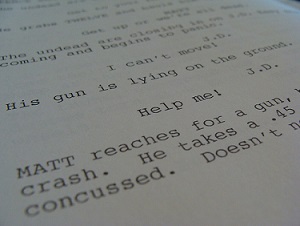
Susan Kouguell speaks with director Aaron Brookner on his journey of re-mastering and re-leasing the documentary on William Burroughs, Burroughs: The Movie (1983) directed by his uncle, Howard Brookner, and Smash the Control Machine the feature documentary that tells the story of Aaron Brookner’s investigation into the mysterious life and missing films of Howard Brookner, who died of AIDS at age 34 in 1989 on the cusp of fame. Howard Brookner’s films also include Bloodhounds on Broadway (1989) and Robert Wilson and The Civil Wars (1987).
Born in New York City, Aaron Brookner began his career working on Jim Jarmusch’s Coffee and Cigarettes and Rebecca Miller’s Personal Velocity before making the award-winning documentary short The Black Cowboys (2004). His first feature documentary was a collaboration with writer Budd Schulberg (On the Waterfront), and his film, The Silver Goat (2012) was the first feature created exclusively for iPad, released as an App and downloaded across 24 countries, making it into the top 50 entertainment apps in the UK and Czech Republic.
The re-mastered print of Burroughs: The Movie will have its premier University of Indiana’s Burroughs 100th birthday event on February 6th, 2014.
SUSAN KOUGUELL: On your Kickstarter site you wrote:
“Howard Brookner directed three films before his death in 1989 from AIDS at the age of thirty-four. In the final year of his life he wrote:
If I live on it is in your memories and the films I made.
It was this quote that inspired me, Howard’s nephew and enthusiastic Burroughsian, to search for the missing print of his first film, Burroughs: The Movie. After a long search I found the only print in good condition and embarked on a project to digitally remaster it and make it available to the public.”
This has been both a personal and artistic journey for you. When did this journey begin?
AARON BROOKNER: It probably began when Howard died, originally. My lasting memories of him were of watching him make his final movie Bloodhounds on Broadway on the set, hanging out together and rough-housing, walking around downtown, the secret handshake and spoken greeting we had, the cool toys from Japan he brought me, messing around with video cameras, trips down to Miami, and oddly enough the Rolling Stones 3D halftime show during the 1989 Super Bowl.
But I also had seen him in a hospital bed. I had been to the AIDS ward. I was over at his apartment quite a bit during his final few months of life. Watched his funeral. And I was seven. Kids know everything that’s going on around them even when they don’t. I guess this was the case and that making Smash the Control Machine is some sort of way to articulate my childlike perspective on the story, as an adult. It’s also a way to satisfy my curiosity.

Howard, I’ve found out, in some weird cinematic way, left clues all over the world really, which show how he lived, and what he lived. He documented everything.
To read more: http://blogs.indiewire.com/sydneylevine/susan-kouguell-interview-with-aaron-brookner












